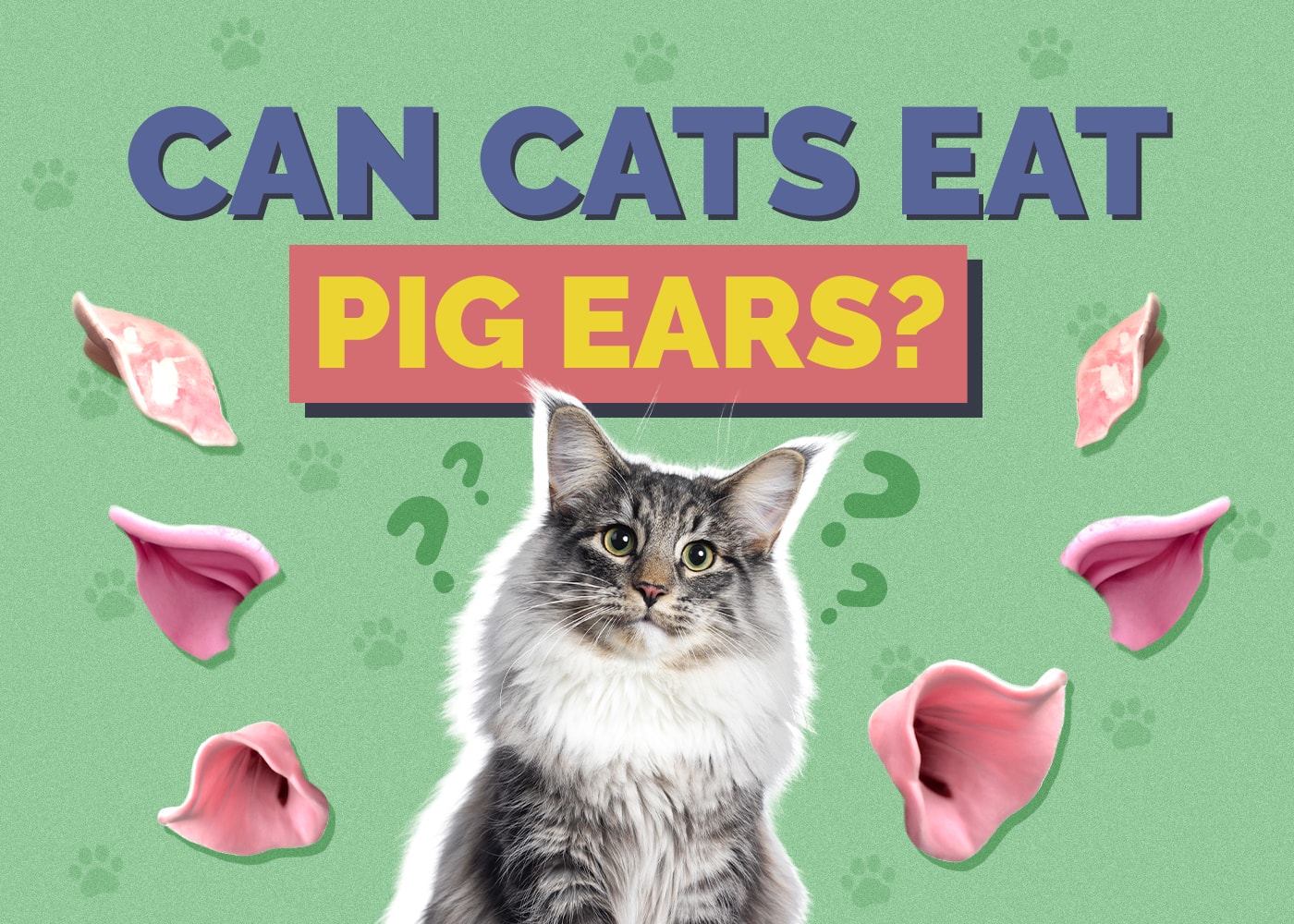How to Tell If Your Cat Is a Maine Coon Mix: Essential Signs
By Ashley Bates
Updated on
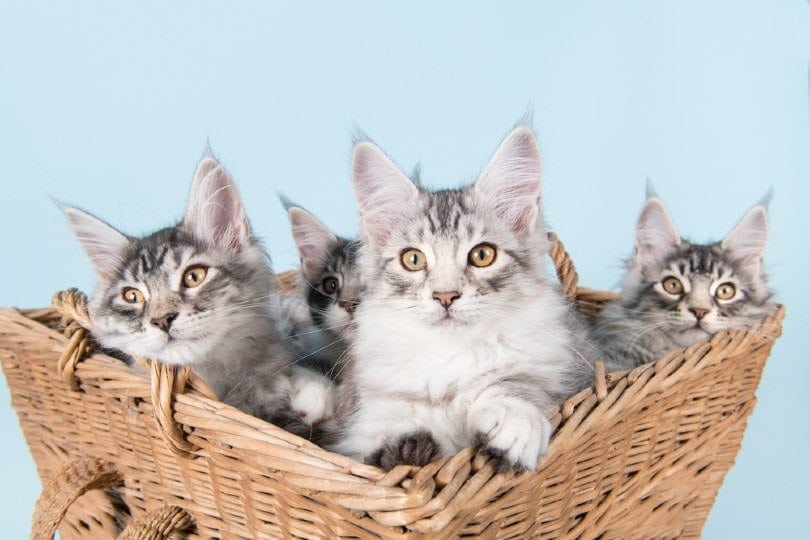
Maine Coons are one of the most extraordinary long-haired breeds. They are massive, powerful-looking cats with captivating personalities and very laid-back attitudes. So if you recently adopted a cute ball of fluff, you might wonder if there’s any Maine Coon in the combo.
There are a few key things you can look for to give you signs. But first, it’s essential to know the distinction between a Maine Coon and other types of domesticated cats.
Signs Your Cat is Part Maine Coon
It can be tough to pin down what might be in the makeup when it comes to mixed-breed cats.
1. The Classic Maine Coon Mane
Maine Coons have a very distinct thickness in their fur around their neck and chest—like a lion. Once your kitten gets out of its adolescent stage, this mane will be more pronounced. So, if you notice the sprawling and feathering—you could very well have Maine Coon lineage coming through.
2. Stance & Weight
One sign of a Maine Coon, as a pure breed, is its formidable size. Maine Coons have a presence about them, weighing nearly 25 pounds as adults. However, mixes will be slightly smaller—but still may be larger than traditional cats in comparison.
We should mention that male Maine Coons are significantly larger than females. So, depending on how the genetics play out, you may not be able to tell with size at all.
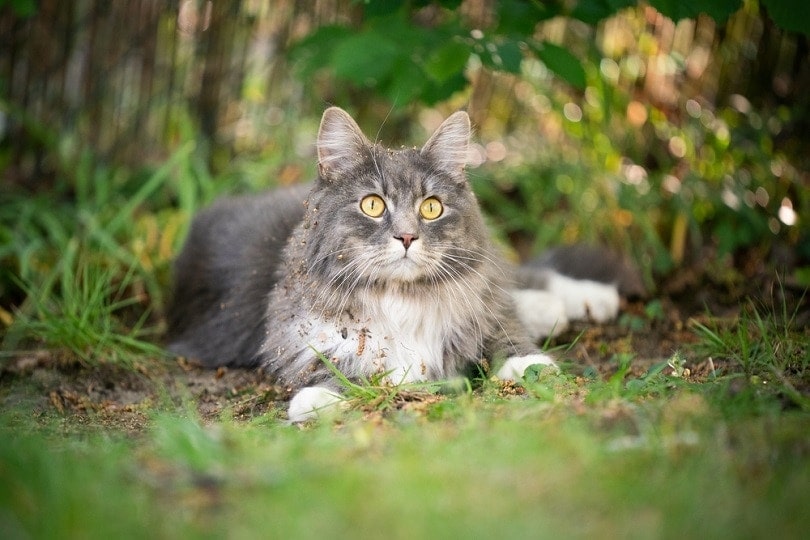
3. Ear Tufts
Maine Coons share classic ear sprouts that scream a signal. These pointy hair tufts are comparable to that of a wild lynx. So if your cat has ear hairs that protrude out in an upward position, they may very well have Maine Coon in their DNA.
4. Fluffy Coat
Maine Coons have two major sheds per year in the spring and fall months. In the winter, they are very thick and full. However, in warmer months, their fur stays soft and fluffy. Their tails stay incredibly bushy, too.
Of course, it’s not a telltale sign if your mix has Maine Coon—but it’s a pretty good start. Maine Coons have wooly double coats that once protected them from harsh Maine winters. So if your cat has an incredibly dense, long coat, they may very well have Maine Coon in their genetics.
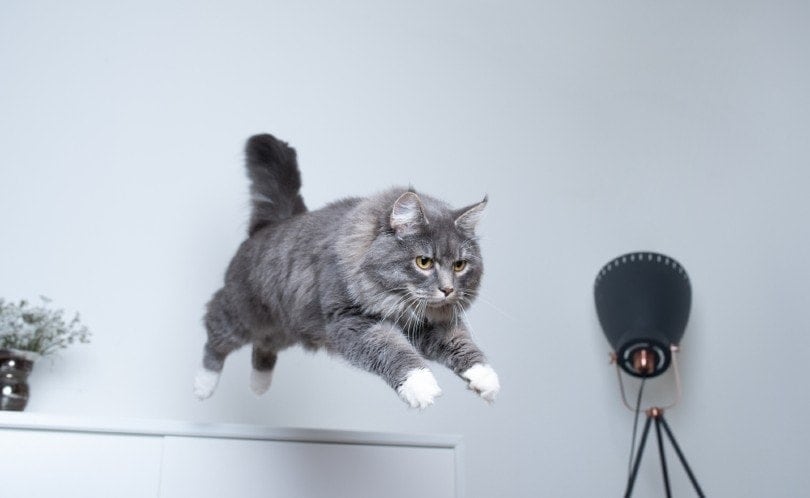
5. DNA Tests
Interestingly, if you want to pay for thrills, you can buy DNA tests to see what comes up. Some companies offer at-home DNA kits to gather a sample of DNA from your cat and send it to the lab for testing. Your trusted vet’s office might provide similar services.
Even though it can be a little expensive, it might be interesting to see just what made up the kitty you love. Plus, this is the one surefire way to know for certain.
Do Shelters Perform DNA Tests Before Adopting Cats Out?
If you’ve browsed shelter animals, you’ve probably noticed they list the breed when they can. For example, they might say something along the lines of “Maine Coon mix.” But do they perform testing to determine if this is true?
Most of the time, the answer is no. They simply judge it based on their experience with certain breeds. Testing every cat that comes into a shelter to see the breed would rack up outlandish costs that most facilities couldn’t afford.
So, if you have a shelter kitty and you’re starting to wonder if they really do have a Maine Coon makeup, the label isn’t for sure.
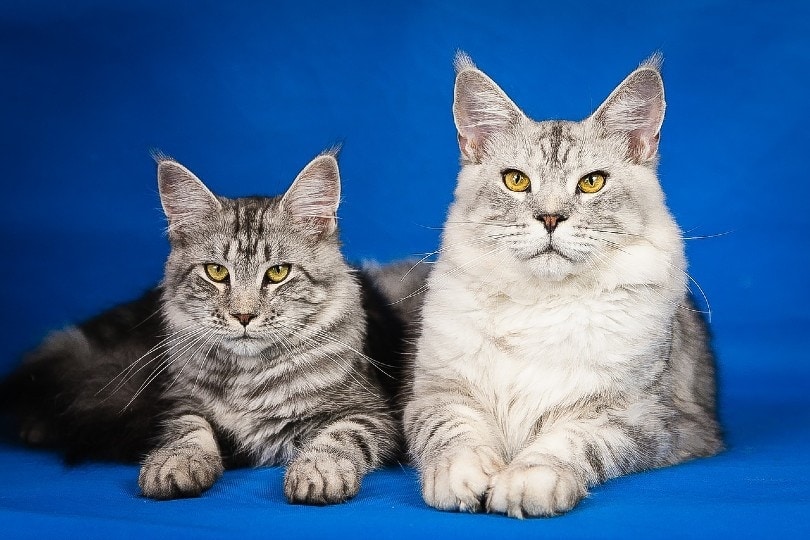
Other Breed Possibilities
If your cat isn’t part Maine Coon, there are several other long-haired breeds to check out. You can compare your cat’s features to these different breeds to see if you can fit the puzzle together.
Final Thoughts
It would be fascinating to consider your cat being partially Maine Coon. After all, they are beautiful cats with sturdy structures and hardy immunities. But, unfortunately, the truth is, without hard proof, there’s no real way to verify Maine Coon genetics by appearance alone.
However, if you are curious to know for sure, you should speak with your vet about the best DNA testing products for cats.
Featured Image Credit: Ivonne Wierink, Shutterstock




